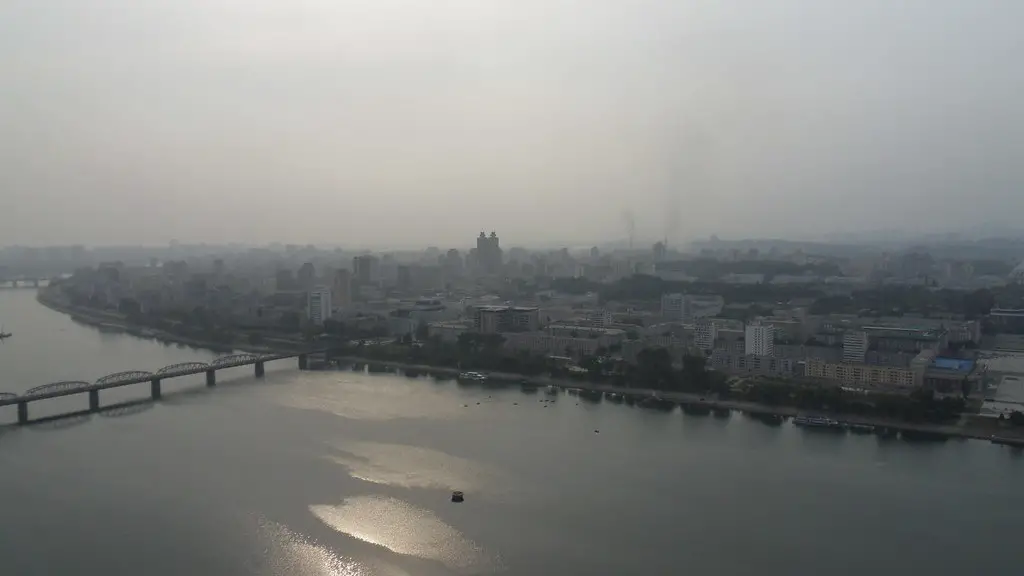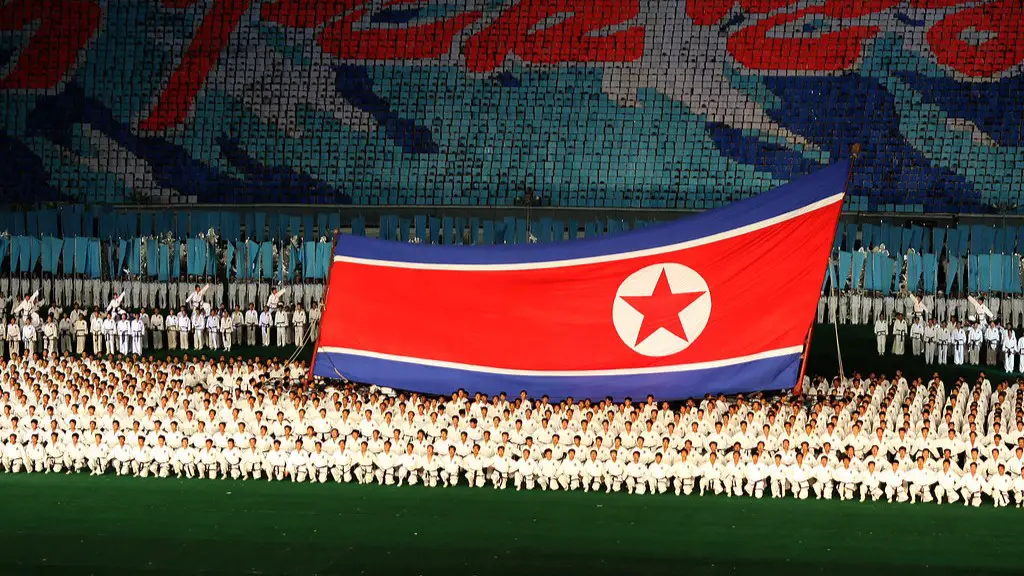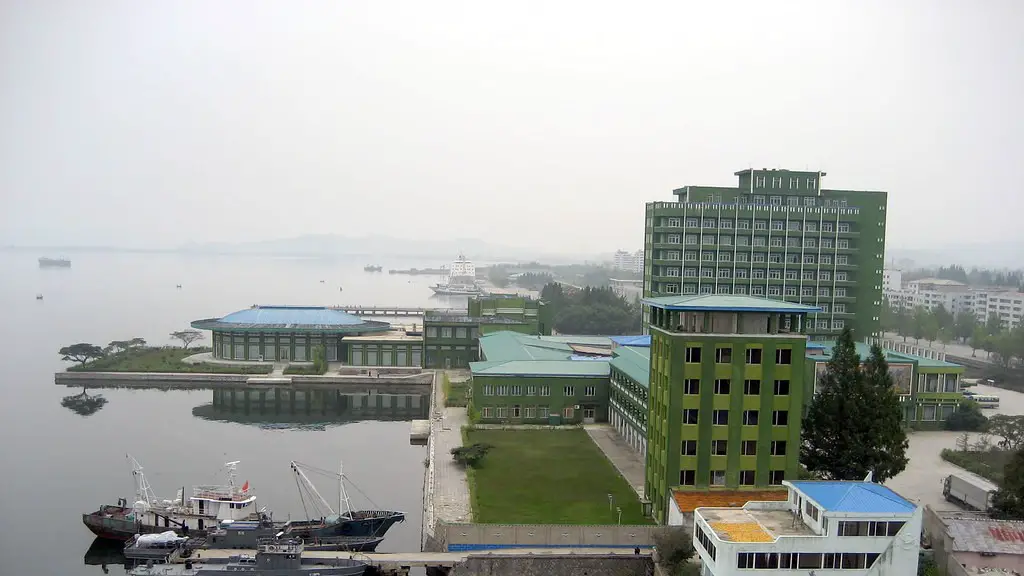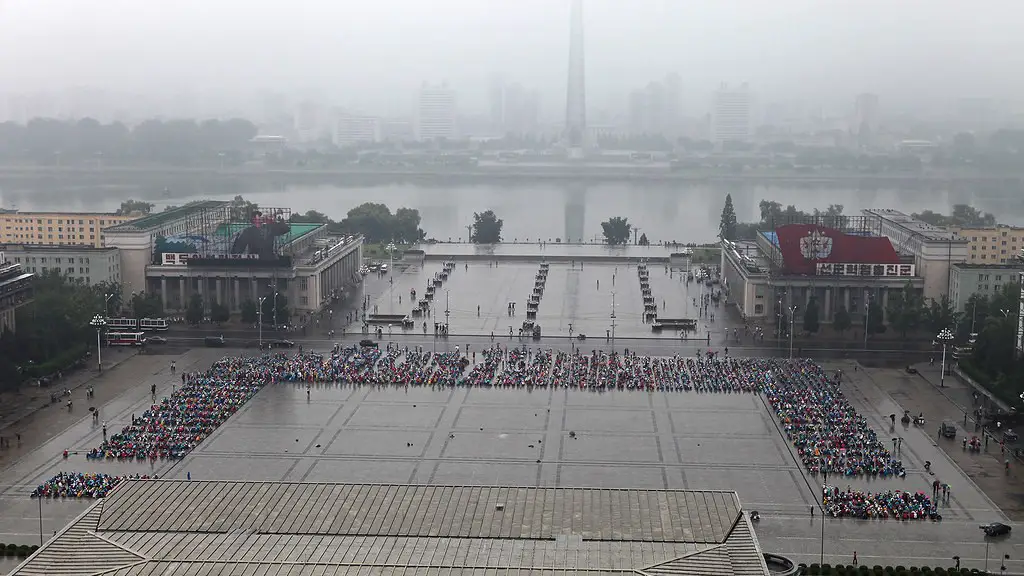The question of why we are fighting with North Korea is one that has vexed policymakers for more than a generation. The two nations have been in a state of near-constant conflict since the Korean War in the 1950’s, and progress towards peace has been slow at best. In recent years, tensions have only increased, leading to what some have called a ‘cold war’ between the two countries. But why are we fighting with North Korea? What lies at the root of this seemingly intractable conflict?
To answer this question, it is important to understand the history of the conflict between the two countries. During the Cold War, North Korea and South Korea were backed by two very different ideological systems. The South was backed by the United States and its allies, while the North was heavily influenced by the Soviet Union. This fundamental disagreement between the two sides eventually led to open conflict in the Korean War. The failure of the Korean War to bring about a lasting peace only deepened the animosity between the two countries.
In the decades since the end of the Korean War, North and South Korea have maintained a tense relationship. North Korea has sought to strengthen its grip on power by pursuing nuclear weapons and other advanced military technology, while South Korea has continued to rely on its alliance with the United States. The North’s pursuit of nuclear weapons has been a major point of contention between the two nations, with the United States in particular concerned about the potential for the North to use the weapons against its neighbors. This has created a seemingly endless cycle of hostility between the two countries.
The conflict between North and South Korea has also been affected by international politics. The presence of the United States in the region has been a major source of tension for the North, with it perceiving the United States as an aggressor. Similarly, China has been a major factor in the relations between the two countries, as it has sought to protect its interests in the region. These international tensions have further complicated the conflict between the two sides.
While it is tempting to simply point to ideological differences and international politics as the cause of the conflict between North and South Korea, it is important to understand the underlying motivations of the two sides. North Korea is a heavily sanctioned and isolated country, and its leaders have consistently sought to maintain their grip on power. This has been a major factor in the conflict, as the North has used its military power to deter potential adversaries. On the other side, South Korea has sought to maintain its alliance with the United States and its other allies, while also attempting to protect its citizens from North Korean aggression.
The conflict between North and South Korea is complicated and multi-faceted, and it is unlikely that there will be a quick or easy solution. It is clear, however, that the two countries must come to some sort of agreement if there is to be any hope of peace in the region. In the meantime, the tensions between the two nations remain high, and it is important that the international community works together to find a resolution.
Background Information
The conflict between North and South Korea has its roots in the end of World War II, when the divided Korean peninsula was occupied by the United States and the Soviet Union. After the war, the United States and its allies backed the formation of the Republic of Korea in the South, while the Soviet Union backed the Democratic People’s Republic of Korea in the North. This ideological divide eventually led to open conflict in the Korean War, which ended in an armistice in 1953 but left the two countries in a perpetual state of near-war.
Since the end of the Korean War, North and South Korea have been in a state of near-constant tension, with the North attempting to pursue nuclear weapons and other means of increasing its strength. On the other side, South Korea and its allies, led by the United States, have taken a firm stance against the North’s actions, leading to an ongoing low-level conflict between the two countries.
Relevant Data
The conflict between North and South Korea has had a significant effect on the region, with military tensions leading to increased economic hardship for both countries. According to World Bank data, the North Korean economy is roughly one-third the size of the South Korean economy, and the poverty rate in North Korea is much higher than in the South. In addition, the presence of the United States in the region has led to diplomatic tensions between North Korea and other countries, as well as economic sanctions that have put further strain on the North’s already struggling economy.
In terms of military forces, both North and South Korea are heavily armed. According to estimates from the International Institute for Strategic Studies, the North Korean military consists of roughly 1.2 million active-duty personnel and 3.9 million reserve personnel. The South Korean military is slightly smaller, but still maintains roughly 700,000 active-duty personnel and 3.3 million reserves.
Perspectives From Experts
Experts on the conflict between North and South Korea have offered a range of opinions on the issue. Many observers agree that the underlying cause of the conflict is the ideological divide between the two countries, and that the nuclear program pursued by the North has only served to heighten tensions. Others point to the presence of the United States in the region, arguing that the presence of the superpower has only served to further exacerbate the conflict.
At the same time, many experts believe that the conflict between North and South Korea is ultimately one that must be solved by the two countries themselves. They argue that the international community must focus on finding ways to encourage dialogue between the two sides, and to encourage a peaceful resolution to the conflict.
Insights and Analysis
The conflict between North and South Korea is one of the most intractable and long-running conflicts in the world. While the two sides have been locked in a state of near-constant conflict since the end of the Korean War, there is hope that dialogue and cooperation between the two sides could eventually lead to a more peaceful resolution.
It is clear, however, that the conflict is complicated and multi-faceted. There are ideological differences between the two sides, as well as international forces such as the United States that have only served to heighten tensions. At the same time, both North and South Korea have eyes on their own interests, with the North seeking to maintain its grip on power and the South hoping to protect its citizens from aggression.
Ultimately, if there is to be any hope of peace in the region then North and South Korea must come to some sort of agreement. In the meantime, it is particularly important that the international community works together to find creative solutions to the conflict.
Psychological Factors
In addition to the ideological and geopolitical factors at play, psychological factors also play an important role in the conflict between North and South Korea. The North Korean people have been subjected to an extremely oppressive and controlling regime for decades, and this has had a significant effect on how the North has acted towards its neighbors. The North’s leaders have consistently sought to maintain their grip on power, and this has often led to aggression towards the South.
At the same time, the South Korean people have always seen the North as a threat. The North’s constant pursuit of nuclear weapons and other military technologies has only served to heighten the South’s perceived vulnerability, leading to an increased willingness among the South Korean people to take a hard line against the North. This psychological dynamic has been a major factor in the conflict between the two sides.
Economic Implications
In addition to the ideological and psychological factors at play in the conflict between North and South Korea, there are also economic implications to consider. The presence of the United States in the region has led to international economic sanctions against North Korea, which has had a major effect on the country’s already struggling economy. On the other hand, South Korea has benefited from its alliance with the United States, with the country enjoying a significant increase in its economic power over the last few decades.
At the same time, the conflict between North and South Korea has also led to a decrease in trade between the two countries. This has been particularly damaging for North Korea, as it has been cut off from a major source of potential income. This has led to an increase in poverty and a further deterioration of the North Korean economy, which has in turn only served to heighten tensions between the two countries.
Potential Solutions
Given the complexity of the conflict between North and South Korea, it is clear that there is no easy or quick solution to the problem. Any potential resolution must take into account the ideological, psychological, and economic factors at play, and must also be acceptable to both sides. This means that the international community must work together to find creative solutions that can address the underlying issues and help the two countries to find a mutual understanding.
One possible solution could involve greater economic engagement between the two countries. It is possible that increased trade between North and South Korea could lead to a decrease in tensions and create a more stable environment in the region. In addition, increased economic ties could help to alleviate poverty and encourage a more fair distribution of wealth in North Korea. This could help to create a more peaceful and stable situation in the long term.
It is clear that resolving the conflict between North and South Korea will be a long and difficult process. But with patience and understanding, it is possible that the two sides can eventually come to a peaceful agreement. It is vital, however, that the international community remains committed to finding a resolution to the conflict, and works together to find creative solutions that can address the underlying issues.





